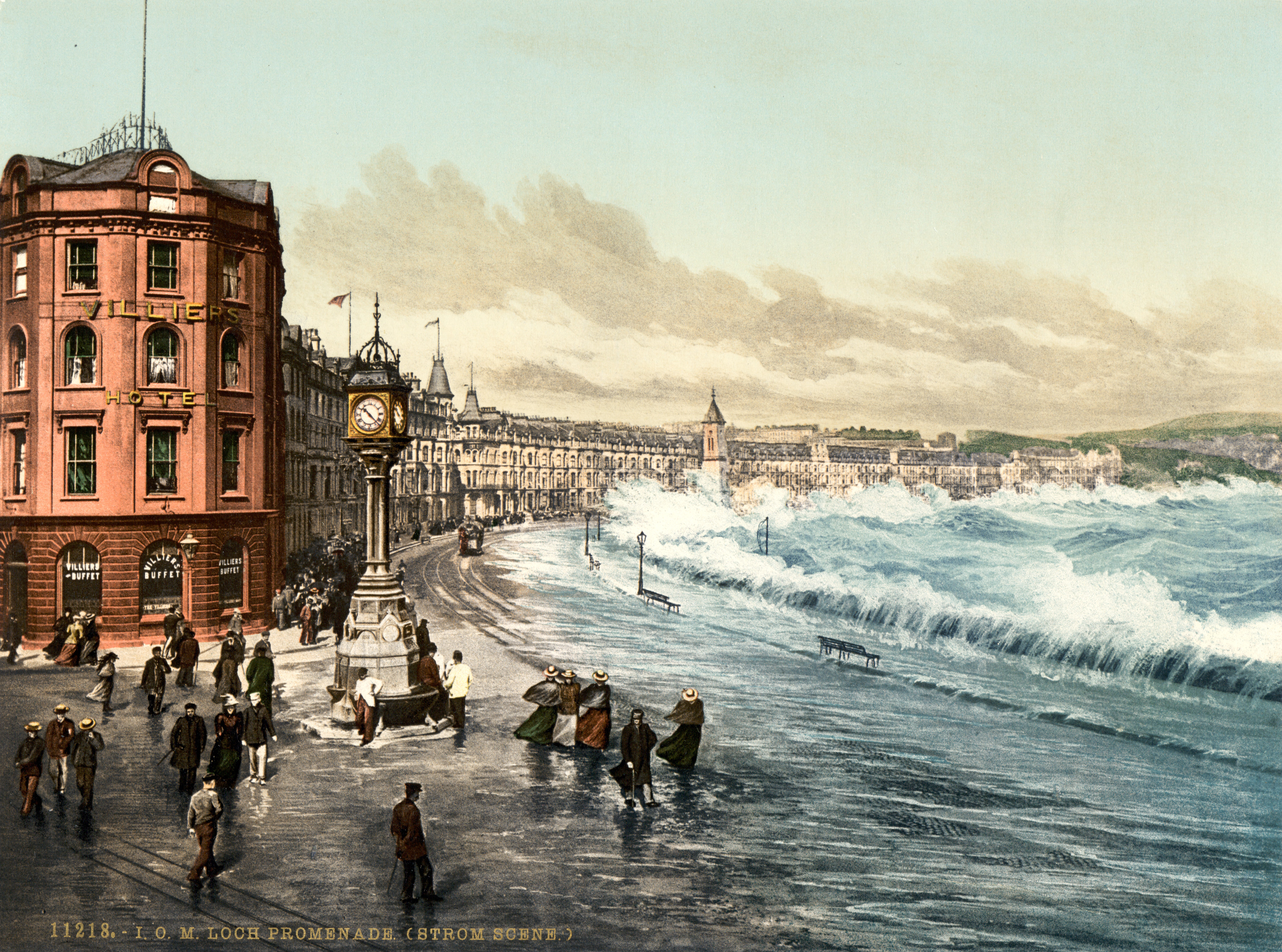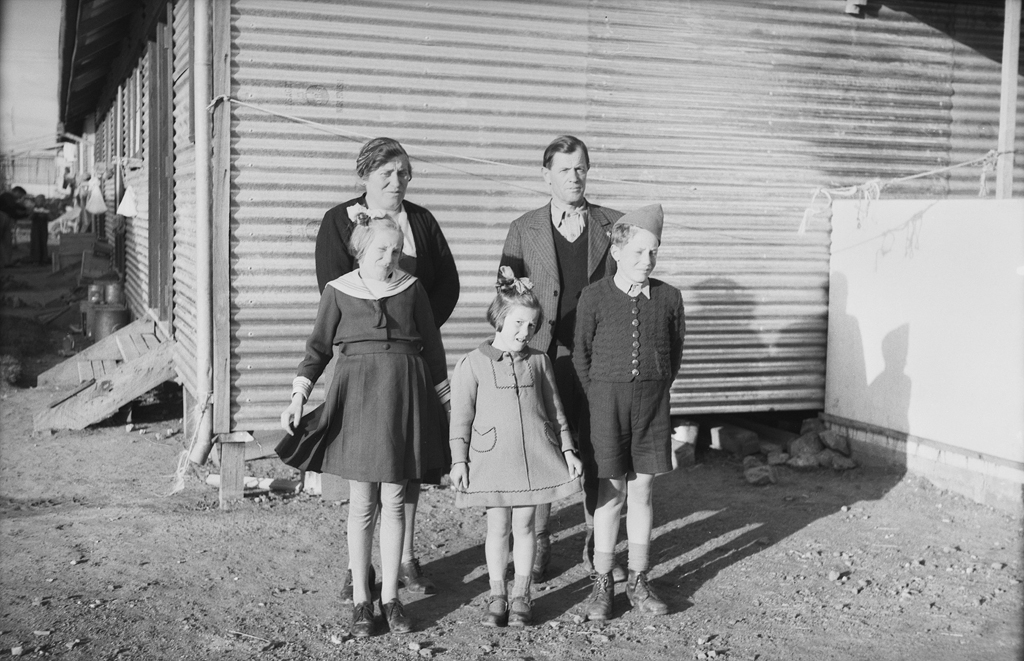|
Michael Kerr (lawyer)
Sir Michael Robert Emanuel Kerr (1 March 1921 – 14 April 2002) was a German-born British jurist, author, lawyer and High Court of Justice judge. He had been told, he said, that he was England's first "foreign-born judge" in 800 years, but he was careful neither to confirm nor to refute that suggestion. Life and career Michael Kerr was born in Berlin-Charlottenburg, Germany, the son of the composer-musician Julia Anna Franziska (Weismann) and the drama critic Alfred Kerr. He was the brother of the author Judith Kerr. His family was Jewish. Kerr and his family were forced to leave their homeland at the end of the Weimar Republic by the emergence of the Nazi Party. After 1933, the Kerr family lived in Switzerland, France and finally the United Kingdom, as noted in the work of Judith Kerr. His experience as an immigrant allowed him to perfect skills in not only German but also French and English. Sponsored by a friend of his father, Kerr was educated at Aldenham School. That a ... [...More Info...] [...Related Items...] OR: [Wikipedia] [Google] [Baidu] |
The Right Honourable
''The Right Honourable'' ( abbreviation: ''Rt Hon.'' or variations) is an honorific style traditionally applied to certain persons and collective bodies in the United Kingdom, the former British Empire and the Commonwealth of Nations. The term is predominantly used today as a style associated with the holding of certain senior public offices in the United Kingdom, Canada, New Zealand, and to a lesser extent, Australia. ''Right'' in this context is an adverb meaning 'very' or 'fully'. Grammatically, ''The Right Honourable'' is an adjectival phrase which gives information about a person. As such, it is not considered correct to apply it in direct address, nor to use it on its own as a title in place of a name; but rather it is used in the third person along with a name or noun to be modified. ''Right'' may be abbreviated to ''Rt'', and ''Honourable'' to ''Hon.'', or both. ''The'' is sometimes dropped in written abbreviated form, but is always pronounced. Countries with common or ... [...More Info...] [...Related Items...] OR: [Wikipedia] [Google] [Baidu] |
Switzerland
). Swiss law does not designate a ''capital'' as such, but the federal parliament and government are installed in Bern, while other federal institutions, such as the federal courts, are in other cities (Bellinzona, Lausanne, Luzern, Neuchâtel, St. Gallen a.o.). , coordinates = , largest_city = Zürich , official_languages = , englishmotto = "One for all, all for one" , religion_year = 2020 , religion_ref = , religion = , demonym = , german: Schweizer/Schweizerin, french: Suisse/Suissesse, it, svizzero/svizzera or , rm, Svizzer/Svizra , government_type = Federalism, Federal assembly-independent Directorial system, directorial republic with elements of a direct democracy , leader_title1 = Federal Council (Switzerland), Federal Council , leader_name1 = , leader_title2 = , leader_name2 = Walter Thurnherr , legislature = Fe ... [...More Info...] [...Related Items...] OR: [Wikipedia] [Google] [Baidu] |
Flight Lieutenant
Flight lieutenant is a junior commissioned rank in air forces that use the Royal Air Force (RAF) system of ranks, especially in Commonwealth countries. It has a NATO rank code of OF-2. Flight lieutenant is abbreviated as Flt Lt in the Indian Air Force (IAF) and RAF, and as FLTLT in the Pakistan Air Force (PAF), Royal Australian Air Force (RAAF) and Royal New Zealand Air Force (RNZAF) and has sometimes also been abbreviated as F/L in many services; it has never been correctly abbreviated as "lieutenant". A flight lieutenant ranks above flying officer and below a squadron leader and is sometimes used as an English language translation of a similar rank in non-English-speaking countries. The rank originated in the Royal Naval Air Service (RNAS) in 1914. It fell into abeyance when the RNAS merged with the Royal Flying Corps during the First World War but was revived in 1919 in the post-war RAF. An RAF flight lieutenant is the equivalent of a lieutenant in th ... [...More Info...] [...Related Items...] OR: [Wikipedia] [Google] [Baidu] |
Douglas, Isle Of Man
Douglas ( gv, Doolish, ) is the capital and largest town of the Isle of Man, with a population of 26,677 (2021). It is located at the mouth of the River Douglas, and on a sweeping bay of . The River Douglas forms part of the town's harbour and main commercial port. Douglas was a small settlement until it grew rapidly as a result of links with the English port of Liverpool in the 18th century. Further population growth came in the following century, resulting during the 1860s in a staged transfer of the High Courts, the Lieutenant Governor's residence, and finally the seat of the legislature, Tynwald, to Douglas from the ancient capital, Castletown. The town is the Island's main hub for business, finance, legal services, shipping, transport, shopping, and entertainment. The annual Isle of Man TT motorcycle races start and finish in Douglas. History Early history In the absence of any archaeological data, the origins of the town may be revealed by analysis of the origina ... [...More Info...] [...Related Items...] OR: [Wikipedia] [Google] [Baidu] |
Enemy Alien
In customary international law, an enemy alien is any native, citizen, denizen or subject of any foreign nation or government with which a domestic nation or government is in conflict and who is liable to be apprehended, restrained, secured and removed. Usually, the countries are in a state of declared war. Australia In Australia, in the wake of the outbreak of World War II, Jewish refugees and others fleeing the Nazis were classified as "enemy aliens" upon their arrival in Australia if they arrived with German identity papers. Australian law in 1939 designated people "enemy aliens" if they were Germans or were Australians who had been born in Germany; later, it covered Italians and Japanese as well. The Australian government would therefore intern them, sometimes for years until the war ended, in camps such as the isolated Tatura Internment Camp 3 D which held approximately 300 internees thus deemed "enemy aliens", mostly families, including children as young as two years of ... [...More Info...] [...Related Items...] OR: [Wikipedia] [Google] [Baidu] |
Defence Regulation 18B
Defence Regulation 18B, often referred to as simply 18B, was one of the Defence Regulations used by the British Government during and before the Second World War. The complete name for the rule was Regulation 18B of the Defence (General) Regulations 1939. It allowed the internment without trial of people suspected of being actively opposed to the ongoing war with Germany during the Second World War such as separatist elements (for example Irish republicans suspected of involvement in the Sabotage Campaign) or were otherwise suspected of ideological Nazi-aligned sympathy (this included members of the British Union of Fascists and similar groups). The effect of 18B was to suspend the right of affected individuals to ''habeas corpus''. Preparations for war The Defence Regulations existed in draft form, constantly revised, throughout the years between the world wars. In early 1939 it was decided that since a war might break out without warning or without time to pass an Act of Parli ... [...More Info...] [...Related Items...] OR: [Wikipedia] [Google] [Baidu] |
Second World War
World War II or the Second World War, often abbreviated as WWII or WW2, was a world war that lasted from 1939 to 1945. It involved the vast majority of the world's countries—including all of the great powers—forming two opposing military alliances: the Allies and the Axis powers. World War II was a total war that directly involved more than 100 million personnel from more than 30 countries. The major participants in the war threw their entire economic, industrial, and scientific capabilities behind the war effort, blurring the distinction between civilian and military resources. Aircraft played a major role in the conflict, enabling the strategic bombing of population centres and deploying the only two nuclear weapons ever used in war. World War II was by far the deadliest conflict in human history; it resulted in 70 to 85 million fatalities, mostly among civilians. Tens of millions died due to genocides (including the Holocaust), starvation, ma ... [...More Info...] [...Related Items...] OR: [Wikipedia] [Google] [Baidu] |
Clare College, Cambridge
Clare College is a constituent college of the University of Cambridge in Cambridge, England. The college was founded in 1326 as University Hall, making it the second-oldest surviving college of the University after Peterhouse. It was refounded in 1338 as ''Clare Hall'' by an endowment from Elizabeth de Clare, and took on its current name in 1856. Clare is famous for its chapel choir and for its gardens on "The Backs" (the back of the colleges that overlook the River Cam). Clare is consistently one of the most popular Cambridge colleges amongst prospective applicants. History The college was founded in 1326 by the university's Chancellor, Richard Badew, and was originally named ''University Hall''. Providing maintenance for only two fellows, it soon hit financial hardship. In 1338, the college was refounded as ''Clare Hall'' by an endowment from Elizabeth de Clare, a granddaughter of Edward I, which provided for twenty fellows and ten students. [...More Info...] [...Related Items...] OR: [Wikipedia] [Google] [Baidu] |
Social Structure Of Britain
The social structure of the United Kingdom has historically been highly influenced by the concept of social class, which continues to affect British society today. British society, like its European neighbours and most societies in world history, was traditionally (before the Industrial Revolution) divided hierarchically within a system that involved the hereditary transmission of occupation, social status and political influence. Since the advent of industrialisation, this system has been in a constant state of revision, and new factors other than birth (for example, education) are now a greater part of creating identity in Britain. Although definitions of social class in the United Kingdom vary and are highly controversial, most are influenced by factors of wealth, occupation, and education. Until the Life Peerages Act 1958, the Parliament of the United Kingdom was organised on a class basis, with the House of Lords representing the hereditary upper class and the House of Commons ... [...More Info...] [...Related Items...] OR: [Wikipedia] [Google] [Baidu] |
Aldenham School
Aldenham School is a co-educational independent school for pupils aged eleven to eighteen, located between Elstree and the village of Aldenham in Hertfordshire, England. There is also a preparatory school for pupils from the ages of five to eleven. It was founded in the late sixteenth century by Richard Platt. History The school was founded in 1597 by Richard Platt, owner of a City of London brewery and Master of the Worshipful Company of Brewers in 1576 and 1581. In 1596, Queen Elizabeth I granted him letters patent to build "the Free Grammar School and Almshouses" at Aldenham; the foundation stone was laid in 1597. Before Platt died in 1600 he obtained an endowment for the School by a covenant between himself and the Brewers' Company. It became a free village grammar school for young boys, also taking in private pupils. In the early 19th century an investigation by the Education Charities Commission of the Poor led to the Tudor Grammar School being demolished and replaced ... [...More Info...] [...Related Items...] OR: [Wikipedia] [Google] [Baidu] |
English Language
English is a West Germanic language of the Indo-European language family, with its earliest forms spoken by the inhabitants of early medieval England. It is named after the Angles, one of the ancient Germanic peoples that migrated to the island of Great Britain. Existing on a dialect continuum with Scots, and then closest related to the Low Saxon and Frisian languages, English is genealogically West Germanic. However, its vocabulary is also distinctively influenced by dialects of France (about 29% of Modern English words) and Latin (also about 29%), plus some grammar and a small amount of core vocabulary influenced by Old Norse (a North Germanic language). Speakers of English are called Anglophones. The earliest forms of English, collectively known as Old English, evolved from a group of West Germanic (Ingvaeonic) dialects brought to Great Britain by Anglo-Saxon settlers in the 5th century and further mutated by Norse-speaking Viking settlers starting in the 8th and 9th ... [...More Info...] [...Related Items...] OR: [Wikipedia] [Google] [Baidu] |
French Language
French ( or ) is a Romance language of the Indo-European family. It descended from the Vulgar Latin of the Roman Empire, as did all Romance languages. French evolved from Gallo-Romance, the Latin spoken in Gaul, and more specifically in Northern Gaul. Its closest relatives are the other langues d'oïl—languages historically spoken in northern France and in southern Belgium, which French ( Francien) largely supplanted. French was also influenced by native Celtic languages of Northern Roman Gaul like Gallia Belgica and by the ( Germanic) Frankish language of the post-Roman Frankish invaders. Today, owing to France's past overseas expansion, there are numerous French-based creole languages, most notably Haitian Creole. A French-speaking person or nation may be referred to as Francophone in both English and French. French is an official language in 29 countries across multiple continents, most of which are members of the ''Organisation internationale de la Francophonie'' ... [...More Info...] [...Related Items...] OR: [Wikipedia] [Google] [Baidu] |
_(cropped).jpg)






.jpeg)